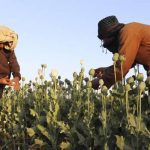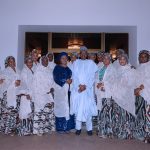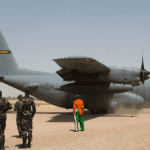The Norwegian Refugee Council (NRC) has announced that it has begun humanitarian operations in different parts of Afghanistan with equal participation of male and female workers.
Secretary general of the Norwegian Refugee Council, Jan Egeland, in a tweet said “I am delighted to confirm that we have been allowed to continue most of our humanitarian operations in Kandahar as well as a number of other locations in Afghanistan.
Egeland further stated that: “All our work is for women & men, girls & boys alike, & with equal participation of our female & male humanitarian colleagues.”
This comes after Egeland said last month that key Islamic Emirate of Afghanistan (IEA) officials told him in meetings that they are close to finalising guidelines that will allow Afghan women to resume work at nongovernmental organisations (NGOs).
The IEA last December barred Afghan women from working at NGOs, allegedly because they were not wearing the hijab correctly and were not observing gender segregation rules.
In April, they extended the ban to UN offices and agencies in Afghanistan. There are exemptions in some sectors like health care and education.
In January, the IEA said they were working on guidelines for women to return to work at NGOs. They previously said they were working on guidelines so that girls and young women could return to education but these have yet to materialize.
During his visit to the country in May, Egeland hoped to persuade the IEA to reverse the ban on the organization’s female staff.
Egeland said he pressed the officials for a timeline and clarity on the word “soon” but they didn’t elaborate.
He was told the IEA couldn’t guarantee anything as everything needed to be put to the supreme leadership. They also told him they had been working on the NGO matter for months and that most issues have been resolved.
The guidelines are likely to cover dress codes, gender segregation in the workplace, and a chaperone for travel.
The Norwegian Refugee Council stood to lose 40% of its funding for Afghanistan because of the bans on female employment and education, he said.
He said the potential loss meant a 40% drop in the number of people reached.
The agency has also laid off 220 of its 1,500 workforce and closed five offices. But it retains male and female Afghan staff who have been unable to work because of the bans. The agency is not deploying male-only teams.
The IEA has repeatedly told senior humanitarian officials visiting Afghanistan since December that the NGO restrictions are temporary suspensions, not a ban.
The Norwegian Refugee Council (NRC) has announced that it has begun humanitarian operations in different parts of Afghanistan with equal participation of male and female workers.
Secretary general of the Norwegian Refugee Council, Jan Egeland, in a tweet said “I am delighted to confirm that we have been allowed to continue most of our humanitarian operations in Kandahar as well as a number of other locations in Afghanistan.
Egeland further stated that: “All our work is for women & men, girls & boys alike, & with equal participation of our female & male humanitarian colleagues.”
This comes after Egeland said last month that key Islamic Emirate of Afghanistan (IEA) officials told him in meetings that they are close to finalising guidelines that will allow Afghan women to resume work at nongovernmental organisations (NGOs).
The IEA last December barred Afghan women from working at NGOs, allegedly because they were not wearing the hijab correctly and were not observing gender segregation rules.
In April, they extended the ban to UN offices and agencies in Afghanistan. There are exemptions in some sectors like health care and education.
In January, the IEA said they were working on guidelines for women to return to work at NGOs. They previously said they were working on guidelines so that girls and young women could return to education but these have yet to materialize.
During his visit to the country in May, Egeland hoped to persuade the IEA to reverse the ban on the organization’s female staff.
Egeland said he pressed the officials for a timeline and clarity on the word “soon” but they didn’t elaborate.
He was told the IEA couldn’t guarantee anything as everything needed to be put to the supreme leadership. They also told him they had been working on the NGO matter for months and that most issues have been resolved.
The guidelines are likely to cover dress codes, gender segregation in the workplace, and a chaperone for travel.
The Norwegian Refugee Council stood to lose 40% of its funding for Afghanistan because of the bans on female employment and education, he said.
He said the potential loss meant a 40% drop in the number of people reached.
The agency has also laid off 220 of its 1,500 workforce and closed five offices. But it retains male and female Afghan staff who have been unable to work because of the bans. The agency is not deploying male-only teams.
The IEA has repeatedly told senior humanitarian officials visiting Afghanistan since December that the NGO restrictions are temporary suspensions, not a ban.
The Norwegian Refugee Council (NRC) has announced that it has begun humanitarian operations in different parts of Afghanistan with equal participation of male and female workers.
Secretary general of the Norwegian Refugee Council, Jan Egeland, in a tweet said “I am delighted to confirm that we have been allowed to continue most of our humanitarian operations in Kandahar as well as a number of other locations in Afghanistan.
Egeland further stated that: “All our work is for women & men, girls & boys alike, & with equal participation of our female & male humanitarian colleagues.”
This comes after Egeland said last month that key Islamic Emirate of Afghanistan (IEA) officials told him in meetings that they are close to finalising guidelines that will allow Afghan women to resume work at nongovernmental organisations (NGOs).
The IEA last December barred Afghan women from working at NGOs, allegedly because they were not wearing the hijab correctly and were not observing gender segregation rules.
In April, they extended the ban to UN offices and agencies in Afghanistan. There are exemptions in some sectors like health care and education.
In January, the IEA said they were working on guidelines for women to return to work at NGOs. They previously said they were working on guidelines so that girls and young women could return to education but these have yet to materialize.
During his visit to the country in May, Egeland hoped to persuade the IEA to reverse the ban on the organization’s female staff.
Egeland said he pressed the officials for a timeline and clarity on the word “soon” but they didn’t elaborate.
He was told the IEA couldn’t guarantee anything as everything needed to be put to the supreme leadership. They also told him they had been working on the NGO matter for months and that most issues have been resolved.
The guidelines are likely to cover dress codes, gender segregation in the workplace, and a chaperone for travel.
The Norwegian Refugee Council stood to lose 40% of its funding for Afghanistan because of the bans on female employment and education, he said.
He said the potential loss meant a 40% drop in the number of people reached.
The agency has also laid off 220 of its 1,500 workforce and closed five offices. But it retains male and female Afghan staff who have been unable to work because of the bans. The agency is not deploying male-only teams.
The IEA has repeatedly told senior humanitarian officials visiting Afghanistan since December that the NGO restrictions are temporary suspensions, not a ban.
The Norwegian Refugee Council (NRC) has announced that it has begun humanitarian operations in different parts of Afghanistan with equal participation of male and female workers.
Secretary general of the Norwegian Refugee Council, Jan Egeland, in a tweet said “I am delighted to confirm that we have been allowed to continue most of our humanitarian operations in Kandahar as well as a number of other locations in Afghanistan.
Egeland further stated that: “All our work is for women & men, girls & boys alike, & with equal participation of our female & male humanitarian colleagues.”
This comes after Egeland said last month that key Islamic Emirate of Afghanistan (IEA) officials told him in meetings that they are close to finalising guidelines that will allow Afghan women to resume work at nongovernmental organisations (NGOs).
The IEA last December barred Afghan women from working at NGOs, allegedly because they were not wearing the hijab correctly and were not observing gender segregation rules.
In April, they extended the ban to UN offices and agencies in Afghanistan. There are exemptions in some sectors like health care and education.
In January, the IEA said they were working on guidelines for women to return to work at NGOs. They previously said they were working on guidelines so that girls and young women could return to education but these have yet to materialize.
During his visit to the country in May, Egeland hoped to persuade the IEA to reverse the ban on the organization’s female staff.
Egeland said he pressed the officials for a timeline and clarity on the word “soon” but they didn’t elaborate.
He was told the IEA couldn’t guarantee anything as everything needed to be put to the supreme leadership. They also told him they had been working on the NGO matter for months and that most issues have been resolved.
The guidelines are likely to cover dress codes, gender segregation in the workplace, and a chaperone for travel.
The Norwegian Refugee Council stood to lose 40% of its funding for Afghanistan because of the bans on female employment and education, he said.
He said the potential loss meant a 40% drop in the number of people reached.
The agency has also laid off 220 of its 1,500 workforce and closed five offices. But it retains male and female Afghan staff who have been unable to work because of the bans. The agency is not deploying male-only teams.
The IEA has repeatedly told senior humanitarian officials visiting Afghanistan since December that the NGO restrictions are temporary suspensions, not a ban.
The Norwegian Refugee Council (NRC) has announced that it has begun humanitarian operations in different parts of Afghanistan with equal participation of male and female workers.
Secretary general of the Norwegian Refugee Council, Jan Egeland, in a tweet said “I am delighted to confirm that we have been allowed to continue most of our humanitarian operations in Kandahar as well as a number of other locations in Afghanistan.
Egeland further stated that: “All our work is for women & men, girls & boys alike, & with equal participation of our female & male humanitarian colleagues.”
This comes after Egeland said last month that key Islamic Emirate of Afghanistan (IEA) officials told him in meetings that they are close to finalising guidelines that will allow Afghan women to resume work at nongovernmental organisations (NGOs).
The IEA last December barred Afghan women from working at NGOs, allegedly because they were not wearing the hijab correctly and were not observing gender segregation rules.
In April, they extended the ban to UN offices and agencies in Afghanistan. There are exemptions in some sectors like health care and education.
In January, the IEA said they were working on guidelines for women to return to work at NGOs. They previously said they were working on guidelines so that girls and young women could return to education but these have yet to materialize.
During his visit to the country in May, Egeland hoped to persuade the IEA to reverse the ban on the organization’s female staff.
Egeland said he pressed the officials for a timeline and clarity on the word “soon” but they didn’t elaborate.
He was told the IEA couldn’t guarantee anything as everything needed to be put to the supreme leadership. They also told him they had been working on the NGO matter for months and that most issues have been resolved.
The guidelines are likely to cover dress codes, gender segregation in the workplace, and a chaperone for travel.
The Norwegian Refugee Council stood to lose 40% of its funding for Afghanistan because of the bans on female employment and education, he said.
He said the potential loss meant a 40% drop in the number of people reached.
The agency has also laid off 220 of its 1,500 workforce and closed five offices. But it retains male and female Afghan staff who have been unable to work because of the bans. The agency is not deploying male-only teams.
The IEA has repeatedly told senior humanitarian officials visiting Afghanistan since December that the NGO restrictions are temporary suspensions, not a ban.
The Norwegian Refugee Council (NRC) has announced that it has begun humanitarian operations in different parts of Afghanistan with equal participation of male and female workers.
Secretary general of the Norwegian Refugee Council, Jan Egeland, in a tweet said “I am delighted to confirm that we have been allowed to continue most of our humanitarian operations in Kandahar as well as a number of other locations in Afghanistan.
Egeland further stated that: “All our work is for women & men, girls & boys alike, & with equal participation of our female & male humanitarian colleagues.”
This comes after Egeland said last month that key Islamic Emirate of Afghanistan (IEA) officials told him in meetings that they are close to finalising guidelines that will allow Afghan women to resume work at nongovernmental organisations (NGOs).
The IEA last December barred Afghan women from working at NGOs, allegedly because they were not wearing the hijab correctly and were not observing gender segregation rules.
In April, they extended the ban to UN offices and agencies in Afghanistan. There are exemptions in some sectors like health care and education.
In January, the IEA said they were working on guidelines for women to return to work at NGOs. They previously said they were working on guidelines so that girls and young women could return to education but these have yet to materialize.
During his visit to the country in May, Egeland hoped to persuade the IEA to reverse the ban on the organization’s female staff.
Egeland said he pressed the officials for a timeline and clarity on the word “soon” but they didn’t elaborate.
He was told the IEA couldn’t guarantee anything as everything needed to be put to the supreme leadership. They also told him they had been working on the NGO matter for months and that most issues have been resolved.
The guidelines are likely to cover dress codes, gender segregation in the workplace, and a chaperone for travel.
The Norwegian Refugee Council stood to lose 40% of its funding for Afghanistan because of the bans on female employment and education, he said.
He said the potential loss meant a 40% drop in the number of people reached.
The agency has also laid off 220 of its 1,500 workforce and closed five offices. But it retains male and female Afghan staff who have been unable to work because of the bans. The agency is not deploying male-only teams.
The IEA has repeatedly told senior humanitarian officials visiting Afghanistan since December that the NGO restrictions are temporary suspensions, not a ban.
The Norwegian Refugee Council (NRC) has announced that it has begun humanitarian operations in different parts of Afghanistan with equal participation of male and female workers.
Secretary general of the Norwegian Refugee Council, Jan Egeland, in a tweet said “I am delighted to confirm that we have been allowed to continue most of our humanitarian operations in Kandahar as well as a number of other locations in Afghanistan.
Egeland further stated that: “All our work is for women & men, girls & boys alike, & with equal participation of our female & male humanitarian colleagues.”
This comes after Egeland said last month that key Islamic Emirate of Afghanistan (IEA) officials told him in meetings that they are close to finalising guidelines that will allow Afghan women to resume work at nongovernmental organisations (NGOs).
The IEA last December barred Afghan women from working at NGOs, allegedly because they were not wearing the hijab correctly and were not observing gender segregation rules.
In April, they extended the ban to UN offices and agencies in Afghanistan. There are exemptions in some sectors like health care and education.
In January, the IEA said they were working on guidelines for women to return to work at NGOs. They previously said they were working on guidelines so that girls and young women could return to education but these have yet to materialize.
During his visit to the country in May, Egeland hoped to persuade the IEA to reverse the ban on the organization’s female staff.
Egeland said he pressed the officials for a timeline and clarity on the word “soon” but they didn’t elaborate.
He was told the IEA couldn’t guarantee anything as everything needed to be put to the supreme leadership. They also told him they had been working on the NGO matter for months and that most issues have been resolved.
The guidelines are likely to cover dress codes, gender segregation in the workplace, and a chaperone for travel.
The Norwegian Refugee Council stood to lose 40% of its funding for Afghanistan because of the bans on female employment and education, he said.
He said the potential loss meant a 40% drop in the number of people reached.
The agency has also laid off 220 of its 1,500 workforce and closed five offices. But it retains male and female Afghan staff who have been unable to work because of the bans. The agency is not deploying male-only teams.
The IEA has repeatedly told senior humanitarian officials visiting Afghanistan since December that the NGO restrictions are temporary suspensions, not a ban.
The Norwegian Refugee Council (NRC) has announced that it has begun humanitarian operations in different parts of Afghanistan with equal participation of male and female workers.
Secretary general of the Norwegian Refugee Council, Jan Egeland, in a tweet said “I am delighted to confirm that we have been allowed to continue most of our humanitarian operations in Kandahar as well as a number of other locations in Afghanistan.
Egeland further stated that: “All our work is for women & men, girls & boys alike, & with equal participation of our female & male humanitarian colleagues.”
This comes after Egeland said last month that key Islamic Emirate of Afghanistan (IEA) officials told him in meetings that they are close to finalising guidelines that will allow Afghan women to resume work at nongovernmental organisations (NGOs).
The IEA last December barred Afghan women from working at NGOs, allegedly because they were not wearing the hijab correctly and were not observing gender segregation rules.
In April, they extended the ban to UN offices and agencies in Afghanistan. There are exemptions in some sectors like health care and education.
In January, the IEA said they were working on guidelines for women to return to work at NGOs. They previously said they were working on guidelines so that girls and young women could return to education but these have yet to materialize.
During his visit to the country in May, Egeland hoped to persuade the IEA to reverse the ban on the organization’s female staff.
Egeland said he pressed the officials for a timeline and clarity on the word “soon” but they didn’t elaborate.
He was told the IEA couldn’t guarantee anything as everything needed to be put to the supreme leadership. They also told him they had been working on the NGO matter for months and that most issues have been resolved.
The guidelines are likely to cover dress codes, gender segregation in the workplace, and a chaperone for travel.
The Norwegian Refugee Council stood to lose 40% of its funding for Afghanistan because of the bans on female employment and education, he said.
He said the potential loss meant a 40% drop in the number of people reached.
The agency has also laid off 220 of its 1,500 workforce and closed five offices. But it retains male and female Afghan staff who have been unable to work because of the bans. The agency is not deploying male-only teams.
The IEA has repeatedly told senior humanitarian officials visiting Afghanistan since December that the NGO restrictions are temporary suspensions, not a ban.














